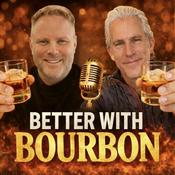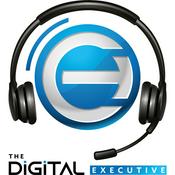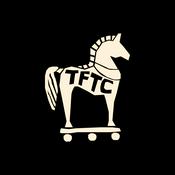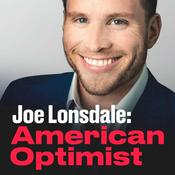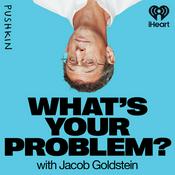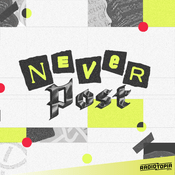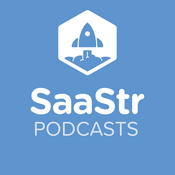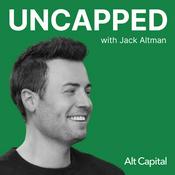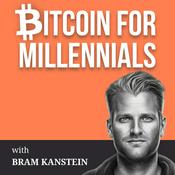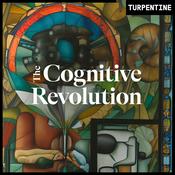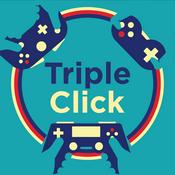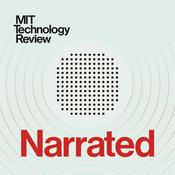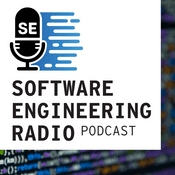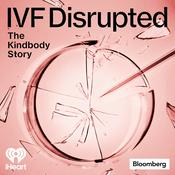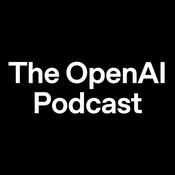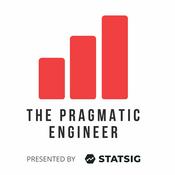341 episodes
- Imagine this: You walk into work on a normal Tuesday, coffee in hand, only to be called into an emergency all-hands meeting. Your division is being dissolved.
Or perhaps your phone alerts you to another presidential directive that threatens your livelihood or community.
Or a routine doctor’s visit turns into a life-altering diagnosis, and treatments and medical appointments take the place of canceled plans.
Or you stare at the remains of your home after a natural disaster tore through your region.
In an instant, everything changes. Your carefully laid plans evaporate. The future becomes a blur. Your brain, in its protective wisdom, either goes into overdrive or shuts down completely.
These scenarios have become increasingly common. When radical change strikes, most of us experience the sensation of having the rug pulled out from under us—whether through job loss, natural disaster, or events beyond our control.
When our world transforms abruptly, our brains shift into survival mode, triggering the fight-or-flight response. While this reaction evolved to address immediate threats, it becomes problematic during extended periods of uncertainty, taking a significant physical toll. Research on “the selfish brain” reveals that our nervous system, attempting to minimize uncertainty, prioritizes energy flow to itself at the expense of the rest of the body, reducing oxygen and glucose delivery elsewhere.
But when our instincts push us toward panic or paralysis, what actions should we take instead? Behavioral science offers a path from overwhelm to stability.
You can read the Nir And Far blog post on: Finding Your Footing When The Ground Shifts Beneath You here.
Nir And Far, a podcast about business, behaviour and the brain by Nir Eyal. If you enjoy this podcast, please subscribe on iTunes and leave an iTunes review. It will greatly help new listeners discover the show. Please visit my website Nir and Far for other info about my writing, books and teaching: http://www.nirandfar.com/ - Your beliefs are tools, not truths.
In 2006, U.S. Team freestyle skier Michelle Roark zoomed down the slope at her first Olympics, conquering hilly terrain that not even a 4×4 could handle. At 31, she was already years older than the average Olympic freestyle skier (24 years old at the time). She had fought through massive obstacles for half her life to get there.
Roark was kicked out of her mother’s house when she was 15 and spent the next three years living in a tent in Winter Park, Colorado. She worked three jobs to support herself. At 16, she qualified for the Olympics but sustained a knee injury that kept her out of the 1994 Olympics. Two more serious knee injuries, each right before the Olympic Games in 1998 and 2002, prevented her from competing. At one point, a coach told her she was never going to make it to the Games.
But Roark knew what she wanted, believed she was capable of it, and refused to quit. She used the rehab time after her second knee surgery to pursue a degree in chemical engineering, which she eventually used to launch a business that she continues to run today. She competed in the 2010 Olympics at the age of 35.
Belief is one of the most powerful forces in our lives. Roark’s unflagging belief that she could be an Olympian brought that goal to fruition. In her mind, her Olympic future was inevitable.
You can read the Nir And Far blog post on: Unlock Your Potential With The Power Of Belief here.
Nir And Far, a podcast about business, behaviour and the brain by Nir Eyal. If you enjoy this podcast, please subscribe on iTunes and leave an iTunes review. It will greatly help new listeners discover the show. Please visit my website Nir and Far for other info about my writing, books and teaching: http://www.nirandfar.com/ - In the opening shot of the music video for “Throw Some Ass,” the camera scans a clinical white sign: “Sofi Tukker Center for Asses That Don’t Move Good.” Inside the mock hospital, a heart monitor flatlines—until the beat drops. Suddenly, the music video erupts into a NSFW riot of sensual movement. To fans, the song is a catchy ode to booty shaking, but to Sophie Hawley-Weld, one half of electronic music duo Sofi Tukker, it was a revelation of her journey through chronic pain and the power of the mind.
In 2018, Sophie and Tucker Halpern were in the middle of a whirlwind year—releasing their first (later Grammy-nominated) album, launching their own record label, and headlining tours—when Sophie began to have chronic migraines.
“We were full-time touring … there was so much happening,” Sophie explained on the podcast Like Mind, Like Body. “We were going out five nights a week. We were traveling way crazier than we are now … Because our career was so new, we said yes to every opportunity, and it put our bodies through a strain. I didn’t do the simple things as well, like take a walk and go get sunlight, all these things I’ve learned how to do since this [pain]. So my body was really confused.”
For the next year and a half, Sophie endured debilitating chronic migraines that forced her to retreat to dark rooms. “I was having to cancel shows, and nothing was working.”
Later, back pain created a destructive cycle when traditional medical approaches failed. She tried every drug and treatment she could find, but they didn’t work. Doctors recommended cortisone injections for her back, which only intensified her fear and worsened her condition—a phenomenon well-documented in pain studies.
As a performing artist, her inability to move without pain didn’t just affect her health; it jeopardized her thriving career.
Yet today, Sophie has been nearly pain-free for almost seven months. How did she get there?
You can read the Nir And Far blog post on: The Pain Paradox: How Fear of Pain Creates More Pain here.
Nir And Far, a podcast about business, behaviour and the brain by Nir Eyal. If you enjoy this podcast, please subscribe on iTunes and leave an iTunes review. It will greatly help new listeners discover the show. Please visit my website Nir and Far for other info about my writing, books and teaching: http://www.nirandfar.com/ - The true joy of parenthood lies in watching our children unfold into their authentic selves. Week by week, month by month, year by year, they evolve into increasingly complex human beings with their own preferences, talents, and perspectives. Yet in our eagerness to know them—and as a natural result of our constant proximity—we often fall into the trap of assigning fixed identities to them prematurely.
As humans, we instinctively categorize and label the world around us. But when applied to developing children, this tendency can be not just unfair but actively harmful to their growth potential.
You can read the Nir And Far blog post on: Let's Not Decide Who Kids Are Before They Do here.
Nir And Far, a podcast about business, behaviour and the brain by Nir Eyal. If you enjoy this podcast, please subscribe on iTunes and leave an iTunes review. It will greatly help new listeners discover the show. Please visit my website Nir and Far for other info about my writing, books and teaching: http://www.nirandfar.com/ - I can’t tell you how many conversations I’ve had with friends and readers who feel stuck in jobs that don’t fulfill them. They’re not necessarily in toxic work environments or dealing with poor treatment (although that happens too—it’s the main cause of dissatisfaction at work). More often, they’re simply bored, feel undervalued, or think their work doesn’t matter.
They’re not alone. A 2024 Gallup report found that 62 percent of people globally are not engaged at work, and another 15 percent are actively disengaged. That means nearly 8 in 10 people feel checked out while on the clock.
Our job enables us to provide for ourselves and our families, but that can make us feel all the more shackled to a work situation that makes us miserable or unfulfilled. Are we meant to suck it up? Do we just have to accept the fact that not everyone gets to have a fulfilling job?
No. Even when your job doesn’t seem meaningful, you can still create meaning. Fulfillment doesn’t have to be something your job gives you. It can be something you bring to your job.
You can read the Nir And Far blog post on: How to Find Fulfillment When Your Job Doesn’t Provide It here.
Nir And Far, a podcast about business, behaviour and the brain by Nir Eyal. If you enjoy this podcast, please subscribe on iTunes and leave an iTunes review. It will greatly help new listeners discover the show. Please visit my website Nir and Far for other info about my writing, books and teaching: http://www.nirandfar.com/
More Technology podcasts
Trending Technology podcasts
About Nir And Far: Business, Behaviour and the Brain
Nir And Far, a podcast about business, behaviour and the brain by Nir Eyal.
Podcast websiteListen to Nir And Far: Business, Behaviour and the Brain, TED Radio Hour and many other podcasts from around the world with the radio.net app
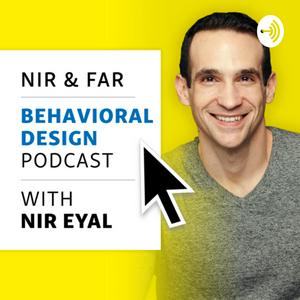
Get the free radio.net app
- Stations and podcasts to bookmark
- Stream via Wi-Fi or Bluetooth
- Supports Carplay & Android Auto
- Many other app features
Get the free radio.net app
- Stations and podcasts to bookmark
- Stream via Wi-Fi or Bluetooth
- Supports Carplay & Android Auto
- Many other app features


Nir And Far: Business, Behaviour and the Brain
Scan code,
download the app,
start listening.
download the app,
start listening.






